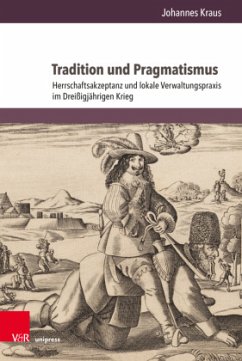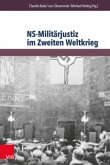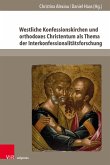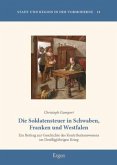Der Dreißigjährige Krieg gilt vielfach als Zeit der Krise von Staatlichkeit und der Erosion von Herrschaft. Dennoch erwiesen sich gerade lokale Herrschaftssysteme als erstaunlich stabil. Am Beispiel des Amtes Neumarkt in der Oberpfalz untersucht Johannes Kraus anhand einzelner administrativer Praktiken, welche Motive die Untertanen bewegten, mit lokalen Vertretern der Obrigkeit bei der Bewältigung des Krieges zu kooperieren. In den Handlungsfeldern Abgabenerhebung, Verfolgung und Prävention militärischer Delinquenz sowie der katholischen Konfessionalisierung arbeitet er heraus, wie Handlungsroutinen und etablierte Verfahren, aber auch konkrete positive wie negative Anreize die Akzeptanz von Herrschaft vor Ort sicherstellten.
The Thirty Years' War proved to be surprisingly stable. Based on a microstudy of the district of Neumarkt in the Upper Palatinate, Johannes Kraus analyzes concrete administrative practices to identify the motives that moved subjects to cooperate with princely officers in coping with the war. In the field of tax collection, the persecution and prevention of military delinquency, and Catholic confessionalization, he works out how routines and traditions, but also specific positive and negative incentives, ensured the acceptance of princely rule on the ground.
Hinweis: Dieser Artikel kann nur an eine deutsche Lieferadresse ausgeliefert werden.
The Thirty Years' War proved to be surprisingly stable. Based on a microstudy of the district of Neumarkt in the Upper Palatinate, Johannes Kraus analyzes concrete administrative practices to identify the motives that moved subjects to cooperate with princely officers in coping with the war. In the field of tax collection, the persecution and prevention of military delinquency, and Catholic confessionalization, he works out how routines and traditions, but also specific positive and negative incentives, ensured the acceptance of princely rule on the ground.
Hinweis: Dieser Artikel kann nur an eine deutsche Lieferadresse ausgeliefert werden.








